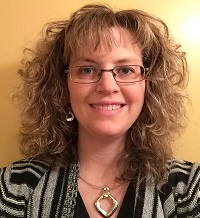 By Lisa Gouin, PCMH Services Manager, eHealthcare Consulting, Inc.
By Lisa Gouin, PCMH Services Manager, eHealthcare Consulting, Inc.
Twitter: @ehealthcareorg
Speaking as someone who was a practice manager for 15 years, I am willing to stand up and say this is perhaps one of the most mentally demanding positions in our country today. That being said, it may also be one of the most rewarding should you choose to positively embrace the current transformation as we head into a new era of practicing healthcare.
Those of you that have been in this field for several years understand this roller coaster of change better than anyone.
Remember when providers hand-wrote all their prescriptions and orders in such a way that nobody except the actual provider could possibly read them?
When a patient called with a question you had to put them on hold to go find their chart?
You had to carefully file every single paper into the proper sections of the patient’s chart?
What about the extra time spent looking for a chart because that one particular staff member didn’t quite know the alphabet as well as they thought?
Then BAM! In the blink of an eye it all rapidly changed. The focus became EHR implementation, Meaningful Use, PQRS, PCMH, Health Information Exchange, Patient Portals, and the dreaded ICD-10…….because let’s be honest….most everyone in the healthcare industry thought October 1, 2015 was the day the world would end!
These new changes remain very concerning for both practice management and physicians. There can be a great deal of cost involved in implementing these changes, such as: new technology demands, new hardware solutions and additional staffing needs necessary to meet the training and reporting demands. These concerns usually lead to the physician’s question of how soon will I see a return on my investment? The answer for many physicians is not nearly as soon as they would like, and they look to you, the practice manager, for all the answers.
As overwhelming as these regulations can be, it’s vitally important to keep your focus on the end result….better quality healthcare, improved patient experiences and most importantly, healthier patients. As we approach a payment model that promotes quality versus quantity, these programs are more important than ever; not only for financial sustainability, but also to ensure the highest quality care for patients and providing healthcare delivered in the manner it should be.
The old paper chart method certainly seems to signify a simpler time, however it actually created an increased likelihood of errors, exhibited less coordination of care and lacked the quality measurement tools present today.
As you go about your daily duties as a practice manager remember that you are not alone, all managers run into the same obstacles and experience like pitfalls. You don’t need to be an expert in everything, just use the numerous resources made available to you. There are countless individuals eager to relay their experiences and help you maneuver this changing health system. Have patience with your providers when they tell you the exact number of “clicks” they have made in one day, or complain that they are in the field of data entry rather than practice medicine- they are simply attempting to adapt to the changes the same as you.
The time will come when you’ll want to scream with frustration and wish you’d never heard the terms Meaningful Use or Patient-Centered Medical Home. You’ll feel like giving up, however stay positive and focused to the task at hand. Utilize your management skills to keep your team positive and take pride that you are an essential part of the successful transformation of our total healthcare system- the indispensable practice manager of today’s healthcare arena.
About the Author: With over 20 years of involvement in the healthcare industry, Lisa brings 15 years of practice management and practice transformation experience including responsibility for the overall success of Meaningful Use, PQRS and PCMH standards and goals. Lisa is a Certified Chronic Care Professional and pursuing the NCQA PCMH Certified Content Expert certification.
